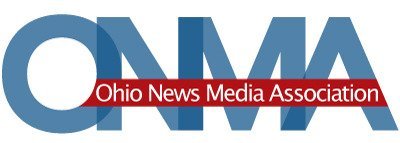Complete Story
11/20/2014
NAA lobbyists predicts industry issues in Congress
By Paul Boyle, Senior Vice President of Public Policy
On Election Day, a Republican wave swept through the country.
Republican Senate candidates picked up enough seats to reclaim the majority in the 114th Congress, which begins on January 6, 2015. Republicans also padded their numbers in the House of Representatives, increasing their majority to the largest since the Great Depression.
While the victory was historic and worth celebrating if you are Republican, now comes the hard part ̶ governing. Having to defend 24 of 34 Senate seats up for reelection in 2016, Senate Republicans – and their counterparts in the House – must prove that they can get things done.
In the weeks ahead, members of Congress will wrap-up business in the 113th Congress. In addition to holding a vote on the Keystone Pipeline Bill so that Rep. Bill Cassidy (R-LA) and Sen. Mary Landrieu (D-LA) can demonstrate support for the oil and gas industry before their Louisiana Senate seat runoff, the “lame-duck” session will focus on extending government funding for the remainder of the fiscal year; confirming non-controversial nominations; and extending expiring tax provisions..
NAA does not see any of its public policy issues coming up in the lame-duck session. Unfortunately, there isn’t a path forward for the enactment of the “Free Flow of Information Act” (S.987), which was approved by the Senate Judiciary Committee in September 2013. As a result of the movement of the legislation however, the Department of Justice revised its internal guidelines for issuing subpoenas to the news media that resulted in a number of positive changes, including a presumption of advance notice before information requests are sent to service providers, and a wider application of the guidelines for communications and business records.
What to Expect in the 114th Congress?
In the early months of the 114th Congress, House and Senate Republicans are expected to go after “low hanging fruit” and push legislation that they believe has bi-partisan support with the potential to be signed by the President. This will include trade promotion authority, a modest increase in infrastructure spending, and modest changes to the Affordable Care Act. The environment for bipartisanship could be tarnished, if the President issues an executive order on immigration and the Republican-led Congress attempts to use its purse strings to rein in the President’s objectives.
Here is a synopsis of what we expect might happen on issues that NAA is engaged:
Corporate Tax Reform / Proposals to Limit the Business Deduction for Advertising
There will be two new chairmen of the congressional tax writing committees: Sen. Orrin Hatch (R-UT) and Rep. Paul Ryan (R-WI). Both have expressed a desire to enact a tax reform package that would simplify the tax code and reduce corporate and individual tax rates. We believe both will develop their own plans for tax reform, and not start with comprehensive plans drafted by their successors, which included proposals to limit the business deduction for advertising expenses to 50 percent with the remaining 50 percent amortized over 5 or 10 years. Given the fact that Congressional Republicans and President Obama are far apart on tax reform, it is a long shot that tax reform will be completed before the 2016 Presidential election. However, work will be done to set the table.
Net Neutrality / Newspaper Broadcast Cross-Ownership
NAA will continue to work closely with the House Energy and Commerce Committee as it considers revisions to the Telecommunications Act of 1996. A telecommunications rewrite could include language responding to an expected Federal Communications Commission (FCC) order on “net neutrality.” President Obama called upon the FCC – an independent agency – to regulate Internet Service Providers as common carriage (“utilities”) under Title II of the Act and prevent the paid prioritization of content distributed through digital distribution channels.
It is likely whatever the FCC decides to do will be litigated for some time. However, if the issue is not resolved in court, it could land in Congress’ lap in this rewrite. In addition to engaging on this issue in support of net neutrality principles, NAA will be lobbying the Energy and Commerce Committee to recalibrate the FCC’s outdated and illogical ban on newspaper/broadcast cross-ownership.
Copyright Reform
After a year of hearings on the Copyright Act, the chairman of the House Judiciary Committee, Rep. Bob Goodlatte (R-VA), may put pen to paper to modernize the Act given changes in technology and the way consumers receive information across digital platforms. NAA testified in January to express support for strong Copyright Act protections and will be active in the debate if the committee moves forward with revisions. The House and Senate Judiciary Committees are also expected address patent reform legislation in next Congress to rein in “patent troll” litigation that has impacted a broad range of businesses, including newspapers.
First Amendment / Newsgathering
NAA stands ready to push for a federal shield law or another legislative fix if reporters’ continue to be at risk for not revealing their confidential sources in Federal court. Newsgathering priorities in the next Congress also include the continued push for a FOIA reform bill, and monitoring for legislative provisions that would discourage communications between the press and government officials on national security issues.
Many are predicting that the 114th Congress will continue the political gridlock that has prevented both parties from doing the nation’s business. That doesn’t have to happen. We saw when President Reagan and President Clinton faced a legislative branch controlled by the other party – they stood firm on their principles yet compromised when it was in our country’s best interests.




